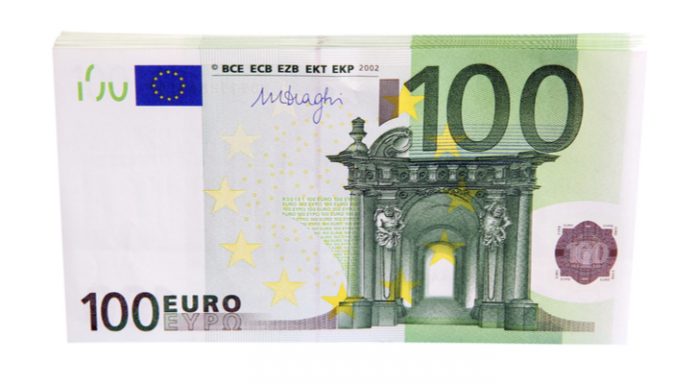Whilst Brexit concerns weighed on demand for the pound in early trade on Thursday, some positive comments from the Bank of England helped to reverse some of the damage. Meanwhile, the euro extended gains from earlier in the week on rate rise optimism. As a result, the pound euro exchange rate took another hit, falling to a low of €1.1315 before rebounding to €1.1365.
| What do these figures mean? |
|---|
|
When measuring the value of a pair of currencies, one set equals 1 unit and the other shows the current equivalent. As the market moves, the amount will vary from minute to minute. For example, it could be written: 1 GBP = 1.13990 EUR Here, £1 is equivalent to approximately €1.14. This specifically measures the pound’s worth against the euro. If the euro amount increases in this pairing, it’s positive for the pound. Or, if you were looking at it the other way around: 1 EUR = 0.87271 GBP In this example, €1 is equivalent to approximately £0.87. This measures the euro’s worth versus the British pound. If the sterling number gets larger, it’s good news for the euro. |
UK Theresa May backed down to hard line Brexiteers. She has agreed that the “backstop”, which would keep the UK in the customs union and single market if no solution to the Irish border issue is found, would only be temporary. Originally the backstop was with now time limit, however the Prime Minister has agreed that this backstop option should only be until 2021 at the latest.
The backstop option was a soft Brexit option, which was is more beneficial to UK businesses, the economy and therefore the pound. However, the fact that this is no longer an open-ended backstop has unnerved investors as it makes a hard Brexit more likely. The pound dive on the news.
| Why is a “soft” Brexit better for sterling than a “hard” Brexit? |
|---|
| A soft Brexit implies anything less than UK’s complete withdrawal from the EU. For example, it could mean the UK retains some form of membership to the European Union single market in exchange for some free movement of people, i.e. immigration. This is considered more positive than a “hard” Brexit, which is a full severance from the EU. The reason “soft” is considered more pound-friendly is because the economic impact would be lower. If there is less negative impact on the economy, foreign investors will continue to invest in the UK. As investment requires local currency, this increased demand for the pound then boosts its value. |
The pound was able to recover some ground as BoE policy makers David Ramsden confirmed that he sees the UK economy rebounding and wages growing further. In a speech in London he said confirmed the central bank’s view that the recent soft patch in economic growth was temporary and that the signs point towards a stronger second quarter.
The euro extended its European Central Bank inspired rally from earlier in the week, despite German factories orders being weaker than what analysts had predicted.
Euro Rallies On ECB speculation
After reports that the ECB are going to start talking about winding down the current bond buying programme, investors see increased odds of the central bank raising interest rates. Investors are now 90% confident that the ECB will hike interest rates next July. As interest rate expectations increase, so has the value of the euro.
| Why do raised interest rates boost a currency’s value? |
|---|
| Interest rates are key to understanding exchange rate movements. Those who have large sums of money to invest want the highest return on their investments. Higher interest rate environments tend to offer higher yields. So, if the interest rate or at least the interest rate expectation of a country is relatively higher compared to another, then it attracts more foreign capital investment. Large corporations and investors need local currency to invest. More local currency used then boosts the demand of that currency, pushing the value higher. |
German factory orders were a negative point in the previous session after they showed an unexpected and sharp decline. Whilst the disappointing numbers didn’t manage to knock optimism towards the euro on Thursday, another set of weak figures from Germany today from industrial production could have a more serious impact.
|
This article was initially published on TransferWise.com from the same author. The content at Currency Live is the sole opinion of the authors and in no way reflects the views of TransferWise Inc. |





